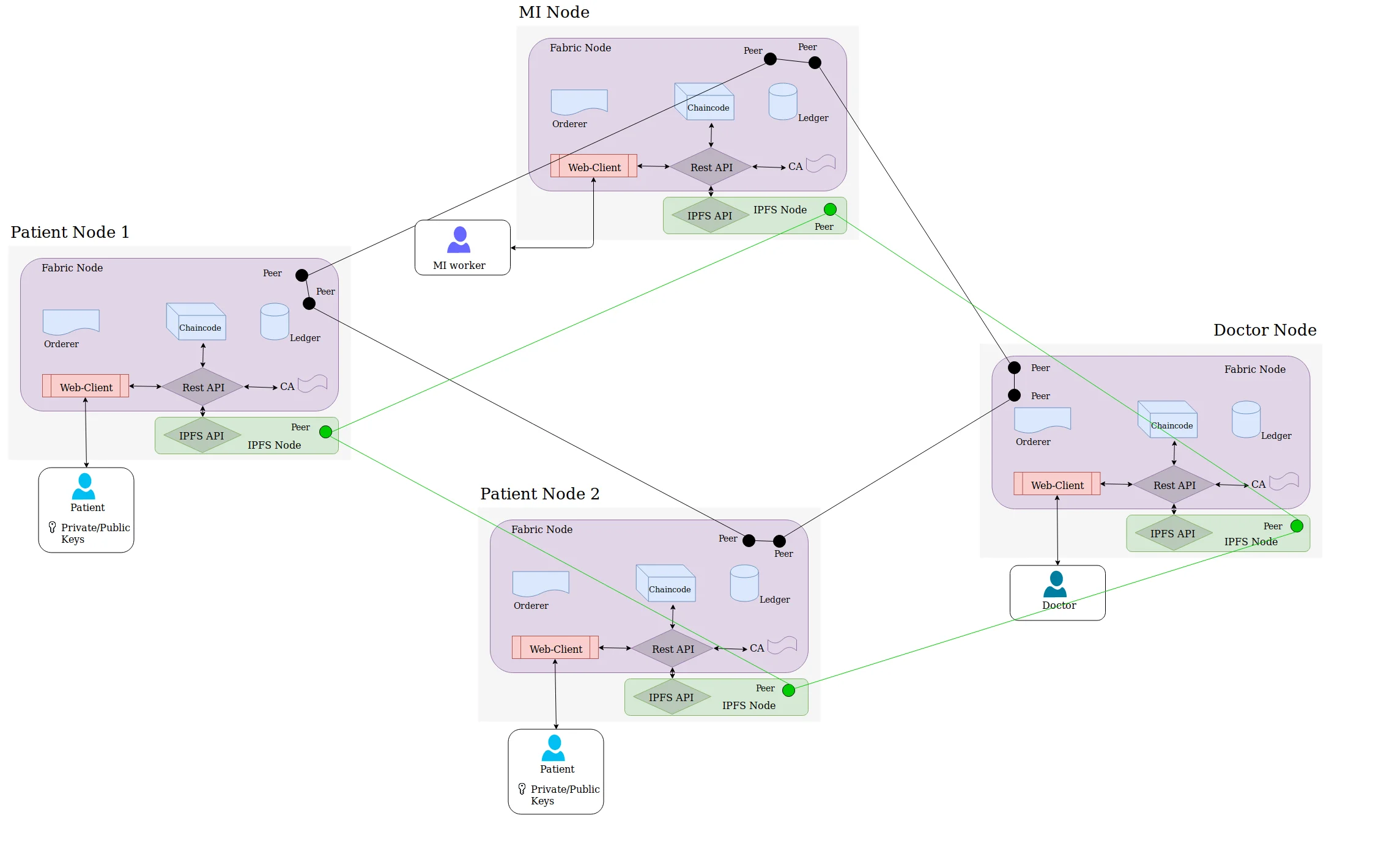Building an Immutable Ledger for Storing Medical Records
A healthcare software provider turned to Altoros for a decentralized system that could store electronic healthcare records (EHR) in a transparent and secure way.
Description
Having delivered a successful proof of concept, the customer has partnered with one of the Premier Members of the Hyperledger Foundation.
The customer
Based in the United Kingdom, the company is a provider of business-to-business blockchain protocol implementations for healthcare. The customer aims to integrate existing EHR systems with a blockchain network and bring in automation.
The need
The majority of medical institutions operate highly centralized systems that store patient data. Being governed by a single point of authority, these systems significantly complicate access to patient history once a person changes a doctor or a hospital. The process also lacks transparency for different specialists handling the same patient.
Therefore, the customer turned to Altoros for custom blockchain application development. The solution was designed for maintaining medical records, aiming to increase transparency while preserving privacy.
The challenge
First and foremost, the system had to be extremely secure, since it deals with highly sensitive patient data. At the same time, it had to manage and process a variety of hi-scale images (X-ray, MRI, etc.), as well as unstructured or semi-structured text and PDF documents (such as prescriptions, treatment lists, or lab test results).
The solution
Using Hyperledger Fabric, engineers at Altoros delivered an immutable distributed ledger for storing medical records. With a permissioned access, the system is now administered by three major roles: a patient, a doctor, and a medical institution.
A patient can manage access to all his/her medical history and approve or reject requests to read/write medical data. A doctor has access to all the records created for the patients under his/her supervision. A medical institution keeps track of all the records—once either a doctor or a patient needs to access them.
Engineers at Altoros have also delivered a notification system that enables patients and doctors to create, accept, and decline appointments, as well as to manage requests. In addition, the system sends e-mail reminders on a day before a scheduled appointment.
To ensure privacy for sensitive data, experts at Altoros utilized the inbuilt data encryption behind Hyperledger Fabric.
On top of that, our team customized the ledger to generate a unique key for each participant, which grants permissioned access for each role.
To enable the system to store a variety of hi-resolution images (X-ray) and semi-structured PDF documents (prescriptions and lab tests), our developers integrated a distributed, peer-to-peer IPFS file system.
Finally, the engineers optimized the chaincode structure to prevent the ledger from duplicating data entities, such as a document, a record, etc.
The outcome
Cooperating with Altoros, the customer developed a decentralized blockchain system for storing medical records in an immutable, transparent, and secure manner. Unlike common blockchain systems that store key-value pairs only, the solution can handle large images (X-ray, MRI, etc.) and other documents important for patients’ medical history.
After having delivered this proof of concept, the customer partnered with one of the leading global software providers (a Premier Member of the Hyperledger Foundation).
The system can be customized for the needs of different medical institutions.
Technology stack
Server platform
Hyperledger Fabric v1.4
Programming languages
JavaScript, Go
Technologies
Node.js, Bash, React.js, Ansible, Apache Kafka, ECDSA, IPFS
Database
RethinkDB
Contact us

Jan-Terje Nordlien
Daglig leder
jan-terje@altoros.no+47 21 92 93 00Altoros Norge AS
Org.nr.: 894 684 992
Tordenskiolds gate 2,
0160 Oslo


